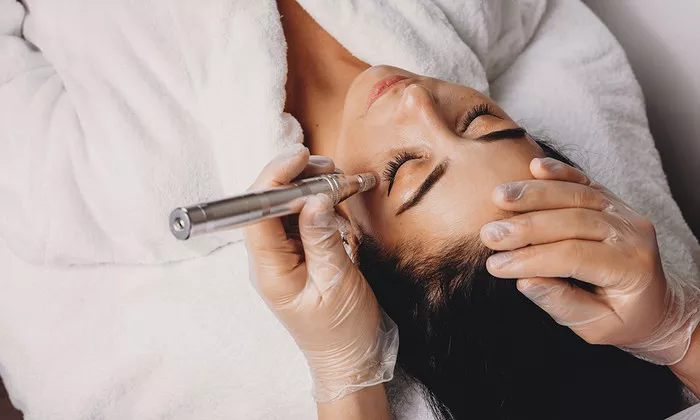Microdermabrasion is a popular skin rejuvenation treatment that offers numerous benefits, including improved skin texture, reduced signs of aging, and a more radiant complexion. However, there is a common misconception surrounding microdermabrasion and its potential impact on hair growth. Many people wonder, “Does microdermabrasion make hair grow back thicker?” In this article, we will delve into this topic and separate fact from fiction.
Understanding Microdermabrasion
Before discussing the effects of microdermabrasion on hair growth, it’s essential to understand what the procedure entails. Microdermabrasion is a non-invasive skin treatment that involves the use of a specialized device to exfoliate the outermost layer of the skin. The device uses a gentle abrasion technique, typically using crystals or a diamond-tipped wand, to remove dead skin cells and impurities, revealing a smoother and more youthful complexion.
Microdermabrasion is commonly performed on the face but can also be done on other areas of the body. It is effective in treating various skin concerns, including fine lines, wrinkles, sun damage, acne scars, and uneven skin texture.
The Hair Growth Myth
The notion that microdermabrasion can cause hair to grow back thicker is a myth. Microdermabrasion is a surface-level treatment that solely focuses on exfoliating the outer layer of the skin. It does not penetrate deep enough to affect the hair follicles or influence the growth, thickness, or density of hair.
Hair growth is primarily determined by genetic factors, hormonal changes, and other internal factors. External treatments such as microdermabrasion cannot alter the natural hair growth cycle or modify the characteristics of hair follicles. Therefore, it is scientifically inaccurate to claim that microdermabrasion can make hair grow back thicker.
Benefits of Microdermabrasion for the Scalp
While microdermabrasion does not impact hair growth, it can offer benefits when applied to the scalp. Scalp microdermabrasion, also known as a scalp exfoliation treatment, involves the use of a gentle exfoliating technique to cleanse the scalp and remove buildup of dead skin cells, oils, and product residue. This treatment can help maintain a healthy scalp environment, promote better absorption of hair care products, and potentially improve the overall appearance and condition of the hair.
Scalp microdermabrasion may be recommended for individuals dealing with dandruff, dry scalp, or product buildup, as it can help unclog hair follicles and create a clean and balanced scalp environment. By promoting a healthier scalp, it indirectly contributes to maintaining optimal hair health.
It’s important to note that scalp microdermabrasion should be performed by a trained professional who can assess the specific needs of your scalp and hair. They will determine the appropriate technique and products to use, ensuring a safe and effective treatment.
Other Hair Growth Treatments
If you are seeking treatments specifically aimed at promoting hair growth, there are various options available. However, it’s crucial to consult with a medical professional or dermatologist to determine the most suitable approach for your individual needs. Some common hair growth treatments include:
- Medications: Certain medications, such as minoxidil or finasteride, are approved by the FDA for treating hair loss and promoting hair regrowth. These medications work by stimulating hair follicles and extending the growth phase of the hair cycle.
- Hair Transplantation: In cases of advanced hair loss, hair transplantation procedures can be considered. This involves taking hair follicles from donor areas and implanting them into areas experiencing hair loss.
- Low-Level Laser Therapy: Low-level laser therapy (LLLT) is a non-invasive treatment that uses red light wavelengths to stimulate hair follicles and promote hair regrowth. It can be performed at home with specialized devices or in professional settings.
- Platelet-Rich Plasma (PRP) Therapy: PRP therapy involves using a patient’s own blood, which is processed to concentrate the platelets rich in growth factors. The platelet-rich plasma is then injected into the scalp to stimulate hair growth.
These treatments are specifically designed to address hair loss and promote hair regrowth, and they are distinct from microdermabrasion, which primarily focuses on skin exfoliation and rejuvenation.
Conclusion
Contrary to popular belief, microdermabrasion does not make hair grow back thicker. Microdermabrasion is a superficial skin treatment that does not affect the hair follicles or the growth, thickness, or density of hair. However, scalp microdermabrasion can be beneficial for maintaining a healthy scalp environment and indirectly contributing to optimal hair health. If you are interested in hair growth treatments, it is best to consult with a medical professional or dermatologist who can provide personalized recommendations based on your unique needs.


